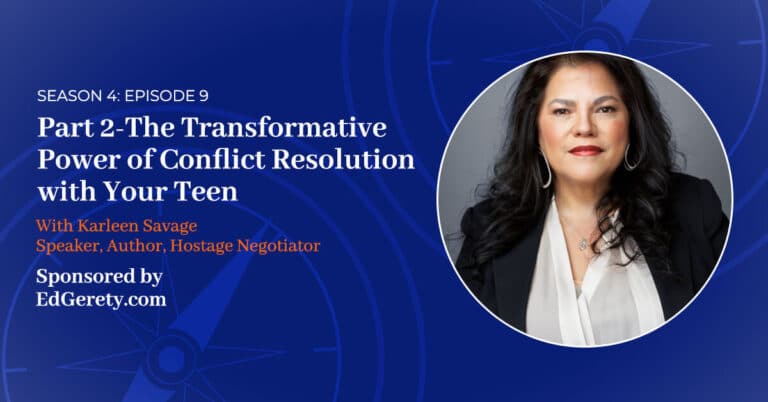Stacey Clarke has been an educator for more than 2 decades. She pursued a career in broadcast journalism in college, then had the chance to be a substitute teacher while building her career. Stacey realized that she had a passion for teaching and wanted to help students experience the very best in education, so she changed careers. Stacey is the Assistant Director for a Charter School, grades 6-12, and she is also a parent of two teens.
Key Takeaways
- It can be a big challenge for teens to have a successful transition to a new school or a new grade. Parents can often offer the advice that it’s all going to be ok. And that may not be true for all teens.
- It can be helpful for parents to share stories of what it was like for them when they transitioned into a new school or a new grade.
- Some teens do better than others, keep communication open with your teen. They can have a whole range of different experiences and emotions and it’s important to be available for them to share what it’s like for them.
- It’s okay for your teen to feel the way they do. Allow them to go deeper into the emotion and let them experience that. It’s ok for them to be nervous, uncertain, afraid.
- Parents should communicate with their teen’s teachers. Tap into resources, academic, social emotional, etc. There is support for your teen in everything they do.
- To help your teen stay organized, keep a shared calendar so they and you know what their teen is expected to do, along with deadlines for assignments and projects. Reach out to teachers to help their teen stay organized, lean on school. The teachers are part of your team.
- Every student should have a trusted adult at school that they can go to. The parents should also have a person at school that they can tap into too. Teens do better, all around, knowing they have a trusted adult at school.
- Social media: “put it down and put it away”. Parents can create device free dinners, device fee car rides, etc. Help their teen take a break from the noise. Important for parents to model good behavior. Boundaries are for the parent as well as the teen.
- To help teens deal with drama, parents need to listen with non-judgment. Once their teen shares their emotions about the drama, they often will find their own way in overcoming it. Don’t try fixing it or pushing it aside.
- Keep communication open with your teen so they know they can talk with you and share their day.
- Respect yourself, respect others.




